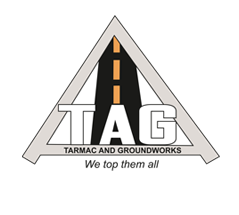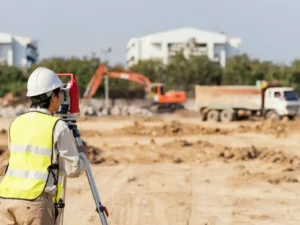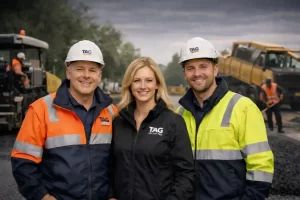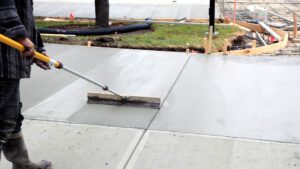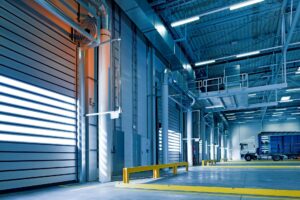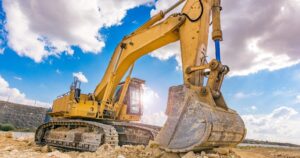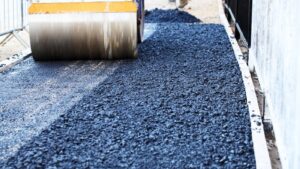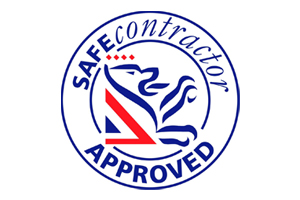A well-functioning drainage system is essential for protecting your property from water damage, foundation issues, and costly repairs. However, drainage problems often go unnoticed until significant damage has already occurred. Standing water, slow-draining sinks, foul odors, and even cracks in walls can all be warning signs that your drainage system isn’t working as it should.
Ignoring these issues can lead to more severe problems, such as structural damage, mold growth, and flooding. Regular drainage inspections can help identify potential problems early, saving you from expensive repairs and property damage. In this blog, we’ll discuss the top five signs that indicate your property may need a drainage inspection and how taking timely action can prevent long-term issues.
Water Pooling & Standing Water
One of the most obvious signs of drainage issues is water pooling in your yard, driveway, or near the foundation of your property. This can be caused by:
- Poor Drainage Design: If your property lacks a proper drainage system, rainwater and runoff have nowhere to go, leading to standing water.
- Blocked Drains or Gutters: Leaves, debris, and dirt can clog drains and gutters, preventing water from flowing away efficiently.
- Improper Grading: If your land is not sloped correctly, water may accumulate instead of draining away naturally.
Risks:
- Soil Erosion: Pooling water can wash away topsoil, damaging your landscaping and weakening the ground around your property.
- Foundation Damage: Water accumulating near your foundation can seep into cracks, leading to structural instability over time.
- Slip Hazards: Standing water on pathways or driveways can create dangerous, slippery surfaces, increasing the risk of accidents.
A drainage inspection can identify whether poor grading, blocked drains, or inadequate drainage systems are causing the issue. Depending on the findings, solutions may include regrading the land, clearing blockages, or installing proper drainage systems such as French drains, soakaways, or channel drains to effectively redirect water away from your property.
Slow Draining Sinks & Toilets
If your sinks, bathtubs, or toilets are draining slower than usual, it could indicate an underlying drainage issue. Common causes include:
- Partial Blockages: Buildup of grease, soap scum, hair, food debris, or foreign objects can restrict water flow in the pipes.
- Tree Root Intrusion: Tree roots can grow into underground drainage pipes, causing blockages and even structural damage.
- Collapsed or Damaged Pipes: Older drainage systems may develop cracks or collapses, preventing water from flowing freely.
- Sewer Line Issues: If multiple fixtures in your home are draining slowly, the problem could be in the main sewer line.
Risks:
- Complete Blockages: Ignoring slow drainage can lead to a full blockage, causing backups and potential flooding inside your home.
- Unpleasant Odors & Bacterial Growth: Stagnant water in partially blocked drains can produce bad smells and encourage bacteria buildup.
- Damage to Pipes: Increased pressure from slow drainage can put strain on pipes, leading to cracks or leaks over time.
A professional drainage inspection, including a CCTV drain survey, can pinpoint the exact location of the blockage or damage. Solutions may include drain cleaning, high-pressure jetting, root removal, or pipe repairs to restore proper drainage and prevent future problems.
Unpleasant Odors from Drains
Foul smells coming from your drains are a strong indication of drainage problems. These odors can be caused by:
Trapped Debris: Food waste, grease, and other organic materials can accumulate in pipes, decompose, and emit bad smells.
- Blocked or Dry P-Traps: The P-trap (a U-shaped pipe under sinks and drains) holds water to block sewer gases. If it dries out or gets blocked, foul odors can escape.
- Sewer Gas Leaks: Cracked or damaged sewer pipes can release unpleasant gases into your home or property.
- Stagnant Water in Pipes: Slow drainage or blockages can cause water to sit in the pipes, leading to bacterial growth and bad odors.
Risks:
- Health Hazards: Exposure to sewer gases can cause respiratory issues, headaches, and irritation.
- Worsening Blockages: If debris is the cause, the problem will likely worsen over time, leading to a full blockage.
- Structural Damage: Leaking sewer gases can indicate damaged pipes, which, if left unaddressed, may lead to costly repairs.
A drainage inspection can determine whether odors are caused by blockages, leaks, or ventilation issues. Professional drain cleaning, pipe repairs, or proper ventilation adjustments can help eliminate the smell and restore proper drainage function. Regular maintenance, including flushing drains with hot water and using enzymatic cleaners, can also help prevent odors from returning.
Unpleasant Odors from Drains
If you notice foul smells coming from your sinks, toilets, or outdoor drains, it could be a sign of an underlying drainage issue. Common causes include:
- Trapped Debris & Organic Waste: Food scraps, grease, hair, and soap buildup can rot inside pipes, creating unpleasant odors.
- Blocked or Dry P-Traps: The P-trap (a U-shaped pipe under sinks and drains) holds water to prevent sewer gases from escaping. If it dries out or becomes clogged, foul smells can rise from the drain.
- Sewer Line Issues: Cracks or leaks in the main sewer line can allow sewer gases to escape, leading to persistent bad odors in and around your property.
- Stagnant Water & Bacterial Growth: Standing water in slow or blocked drains can lead to bacteria and mold buildup, causing musty or rotten smells.
Risks:
- Health Hazards: Prolonged exposure to sewer gases can cause headaches, dizziness, and respiratory issues.
- Escalating Drainage Problems: Odors often indicate an underlying issue, such as a blockage or pipe damage, that could worsen if left unaddressed.
- Structural Damage: If sewer gases are escaping due to cracked pipes, water leaks could follow, leading to foundation or property damage.
A drainage inspection can identify whether the problem is due to a blockage, dry P-trap, or damaged sewer lines. Professional drain cleaning, hydro jetting, or pipe repairs may be required to eliminate the smell and restore proper drainage. Regular maintenance, including flushing drains with hot water and using enzyme-based cleaners, can help prevent odors from returning.
Cracks in Walls or Driveways
If you notice cracks forming in your walls, driveways, or paving, poor drainage could be the underlying cause. Water buildup around your property can lead to:
- Soil Erosion: Excess water can wash away soil beneath foundations, driveways, or patios, causing uneven settling and cracks.
- Water Seepage into Foundations: Poor drainage can allow water to penetrate foundation walls, leading to structural weakening and visible cracks.
- Hydrostatic Pressure: When water accumulates around a structure with no proper drainage outlet, the pressure can cause concrete, brickwork, and asphalt to crack.
- Freeze-Thaw Damage: Water trapped in small cracks can expand when frozen, worsening the damage over time.
Risks:
- Foundation Instability: Continued water infiltration can lead to serious structural damage, requiring costly repairs.
- Trip Hazards: Cracks in driveways or pathways can create uneven surfaces, increasing the risk of trips and falls.
- Worsening Property Damage: Small cracks can grow over time if drainage problems are not addressed, leading to expensive repairs.
A professional drainage inspection can identify whether water buildup is contributing to cracks. Solutions may include installing French drains, improving surface grading, waterproofing foundation walls, or repairing damaged drainage pipes. Addressing drainage problems early can prevent further structural damage and costly repairs.
Frequent Dampness & Mold Growth
Excess moisture inside your home or around your property is a clear sign of drainage problems. Poor water management can lead to:
- Water Seepage Through Walls & Floors: Improper drainage can cause groundwater to accumulate around your foundation, leading to damp walls, floors, and basements.
- Poor Ventilation & Excess Humidity: When drainage issues cause moisture buildup, it increases indoor humidity levels, creating a perfect environment for mold and mildew.
- Leaking Pipes or Blocked Drains: Slow-draining water or leaks in underground pipes can contribute to persistent dampness inside and outside your home.
- Condensation from Temperature Differences: Poor drainage can lead to excessive moisture in the air, causing condensation on windows, ceilings, and walls.
Risks:
- Health Issues: Mold spores can cause allergies, respiratory problems, and other health concerns, especially in children and those with asthma.
- Structural Damage: Prolonged dampness can weaken walls, ceilings, and wooden structures, leading to costly repairs.
- Unpleasant Odors & Reduced Air Quality: Mold growth results in musty smells, making your indoor environment less comfortable.
A drainage inspection can determine whether water infiltration, poor grading, or pipe leaks are causing dampness and mold growth. Solutions may include improving drainage systems, waterproofing walls, fixing leaks, and installing proper ventilation to reduce moisture levels. Early intervention can prevent long-term damage and create a healthier living environment.
How TAG SW Limited Can Help with Drainage Solutions in Bath
At TAG SW Limited, we provide expert drainage solutions tailored to protect your property from water damage and ensure efficient water management. Whether you’re dealing with water pooling, slow drains, foul odors, or foundation issues caused by poor drainage, our experienced team can diagnose the problem and implement the best solution. We offer comprehensive drainage services, including drain installation, repairs, unblocking, and waterproofing, using high-quality materials and industry-approved techniques. Our team conducts thorough inspections to identify underlying issues and provides customized solutions such as French drains, soakaways, and surface water management systems. With over 20 years of experience, TAG SW Limited is committed to delivering reliable, long-lasting drainage solutions for both residential and commercial properties in Bath and the surrounding areas.
Conclusion
Ignoring drainage issues can lead to serious property damage, costly repairs, and health risks. Signs like water pooling, slow drains, foul odors, cracks, and persistent dampness indicate that your drainage system may not be functioning properly. A professional drainage inspection can help identify the root cause of these problems and provide effective solutions to prevent long-term damage.
By addressing drainage issues early, you can protect your home’s foundation, improve air quality, and ensure proper water management around your property. If you notice any of these warning signs, it’s best to act quickly and consult experts to maintain the safety and integrity of your property.
